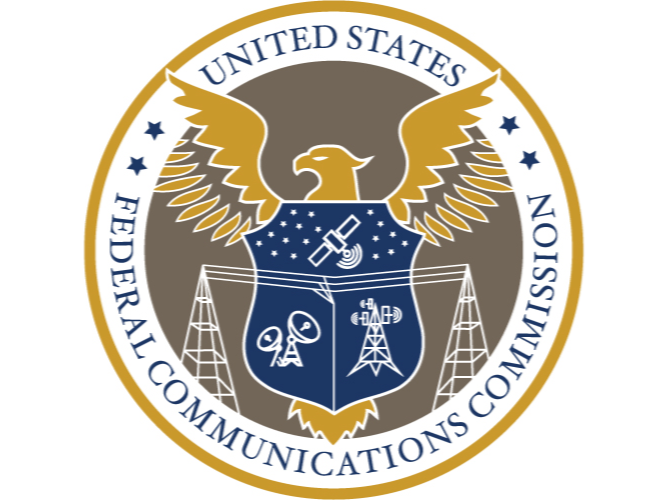The FCC Faces a Busy Regulatory Agenda for 2024, Addressing Old Policies and New Proposals

For broadcasters, cable television operators, and direct broadcast satellite (DBS) providers, the Federal Communications Commission’s recent regulatory agenda features a mix of old policies and new initiatives.
FCC Ownership Rules
The FCC is statutorily required to review its ownership rules every four years. The 2018 quadrennial ownership review – which extended past the start of the pending 2022 review – ended in disappointment for many broadcasters. Under pressure from a federal court to bring the long-pending proceeding to a close, the FCC chose to keep intact the current local radio ownership, local television ownership and dual network rules. Many broadcasters had hoped for a relaxation of the rules, saying that at least some loosening is necessary to help them compete in the rapidly transforming and intensely competitive audio and video marketplace.
Despite major changes to the environment in which radio and television stations operate, including the advent and exponential growth of alternative audio and video programming sources and the growing share of advertising revenues going to large tech companies, the FCC has kept the same broadcast ownership restrictions in place for decades. The local radio ownership rule, which limits the number of stations a single entity or individual can own in a local market, and imposes a “subcap” on the number of AM or FM stations that can be under common control in a market, has remained static since the 1996 Telecommunications Act set the current limits. The local television ownership rule, which generally allows an entity to own two TV stations in the same Designated Market Area (DMA) as long as at least one of the stations is not among the top-four rated stations in the market, is also decades old. The dual network rule, which prohibits a merger between any of the big-four broadcast television networks, originated in the 1940s.
In keeping the current ownership limits in place, the FCC continued its longstanding focus on competition, localism, and viewpoint diversity. The agency concluded that preserving the current rules is necessary to prevent excessive marketplace consolidation it believes could harm the listening and viewing public. The FCC also said there was no consensus on whether relaxing the rules would allow broadcast stations to respond to marketplace changes more effectively, and noted that at least some broadcasters had opposed loosening the current restrictions. Certain broadcast groups have signaled they may appeal the FCC’s decision in court.
Proposals Relating to Retransmission Consent Blackouts
The FCC has recently adopted several rulemaking proposals that would impact cable and DBS providers (“MVPDs”). Under federal law, MVPDs must obtain a television station’s consent to carry the station’s signal. In turn, television stations are entitled to seek compensation under a system known as “retransmission consent.” Sometimes, retransmission consent negotiations are unsuccessful and a station’s signal is removed from a cable or DBS provider’s lineup. The most infamous blackouts have occurred just before major sports events like the Super Bowl – with the threat that millions of viewers will be unable to watch the game – resulting in video providers and broadcasters signing deals at the last minute to prevent a signal blackout or restore a station’s already blacked-out signal.
Citing a dramatic increase in retransmission consent-related signal blackouts resulting in subscribers losing access to local and network television programming, the FCC is considering whether to require MVPDs (and possibly broadcasters) to report blackouts to the FCC within 48 hours. In another proceeding, the FCC is considering requiring MVPDs to give rebates to subscribers who experience blackouts due to failed retransmission consent negotiations between MVPDs and television broadcasters.
If the FCC’s rebate proposal is adopted, MVPDs will need to issue refunds to subscribers who are unable to watch a local broadcast television station when retransmission consent negotiations fail. How such a rebate mechanism would work, what amount subscribers would be refunded, and whether the FCC has the authority to impose such a requirement on pay TV providers are all issues the FCC will need to work through.
Proposal to Prohibit “Junk Fees”
Another new initiative targets so called “junk fees” imposed on subscribers by some MVPDs. The FCC is proposing to ban MVPDs from charging early termination fees (ETFs) and billing cycle fees (BCFs). ETFs require subscribers to pay a fee to terminate a video services contract before its expiration date, making it costly to switch services during a contract term. BCFs require subscribers to pay for a complete billing cycle even if they terminate their contract before the end of the cycle, leaving them paying for services they no longer want.
The FCC’s “junk fees” initiative is part of a broader Biden administration push for federal agencies to ban such fees in numerous industries, including telecommunications, banking, airlines, and concert ticketing. For the FCC, important issues to resolve are whether the agency has the legal authority to adopt anti-ETF and BCF regulations, how a ban would need to be coordinated with state and local authorities, and whether a “junk fee” prohibition could be applied to an entire bundle when cable or DBS video services are bundled with non-video services such as phone and internet.
What the Future May Bring
We believe the FCC will try to issue orders in these proceedings before the upcoming presidential election. We also anticipate additional actions on some long-pending proposals that impact media companies, including the potential reinstatement of the requirement that broadcasters report the race and gender composition of their employees.
This article was written by Sally A. Buckman and F. Scott Pippin, who are members of the Media Practice Group at Lerman Senter, PLLC. Lerman Senter is a specialized Washington DC law firm that advises clients in the media, technology, and telecommunications industries.
Posted at MediaVillage through the Thought Leadership self-publishing platform.
Click the social buttons to share this story with colleagues and friends.
The opinions expressed here are the author's views and do not necessarily represent the views of MediaVillage.org/MyersBizNet.

